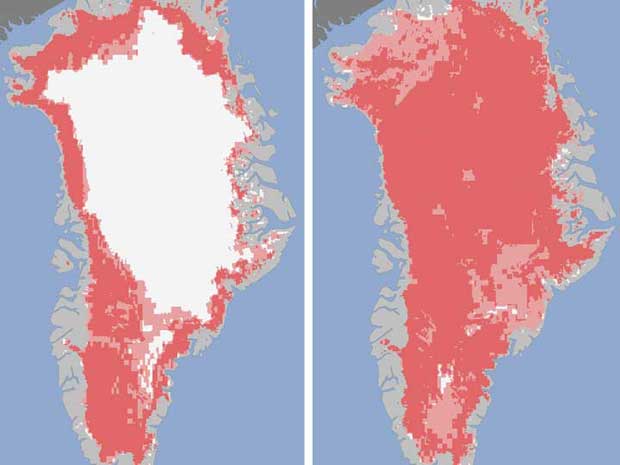Concerns raised as strange and sudden ice sheet melt reported in Greenland

Scientists say there has been a freak event in Greenland this month: Nearly every part of the massive ice sheet that blankets the island suddenly started melting.
Even Greenland's coldest place showed melting. Records show that last happened in 1889 and occurs about once every 150 years.
Nasa says three satellites saw what it calls unprecedented melting over four days beginning on 8 July. Most of the thick ice remains. But what was unusual was that the melting occurred over a widespread area.
Nasa says the melting area went from 40 per cent of the ice sheet to 97 per cent. Until now, the most extensive melt seen by satellites in the past 30 years was about 55 per cent.
Scientists cannot say yet if the melting is from global warming or natural.
AP
Join our commenting forum
Join thought-provoking conversations, follow other Independent readers and see their replies
Comments
Bookmark popover
Removed from bookmarks